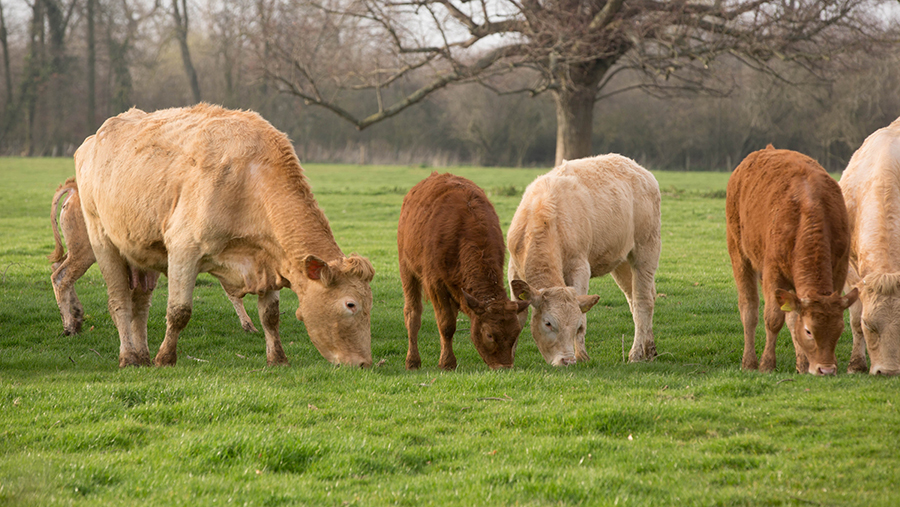OFC 2022: Resilient supply chains needed to counter trade deal threats
 © Tim Scrivener
© Tim Scrivener Livestock farmers have been urged to capitalise on the UK’s prime conditions for sustainable beef and lamb production to help create resilient supply chains in the face of increased trade competition.
Speaking at the recent Oxford Farming Conference, leaders in livestock research and innovation warned the industry faced significant pressure over the next 10 years to fulfil environmental objectives while dealing with the loss of subsidies and threat of being undercut by imports due to government trade deals.
See also: Australian trade deal: Opportunities and threats to UK farmers
Phil Bicknell, head of business development at UK livestock innovation centre CIEL, said the journey to net-zero emissions and the shift of government support to environment actions meant “today’s high standards are effectively tomorrow’s baseline”.
“There is such an obvious fit with improving sustainability and improving productivity and profitability,” he said.
“A lot of the actions around business performance also have implications for sustainability. Whether it is making more effective use of forage or focusing on animal health, that is going to improve my bottom line and my environmental impact.”
Positive story
Mr Bicknell said livestock farmers needed to tell their positive story and use the natural advantage of UK production, as further trade liberalisation increases competition.
“We are in a country where grassland is the predominant type of farmland.
“We are talking about 17m hectares of farmland in the UK, with about 10m of it permanent pasture and rough grazing. It means building on that natural advantage we’ve got, whether it is enhancing soil productivity, including legumes in pasture mixes, promoting soil health and fertility – they have all got a role.”
Ian Wheal, founder of cattle management and trading app Breedr, said: “We are moving into a world where we are competing with New Zealand, Australia and America as we start to look at other trade deals.
“It is no longer just about being productive and having the highest welfare standards, we are also going to be competing for the consumers’ taste, and meat quality becomes a big part of that in terms of how we have to think about the supply chains of the future.”
